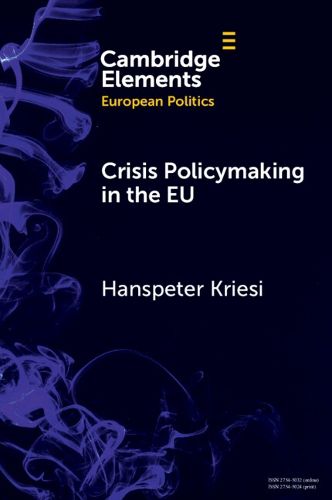Readings Newsletter
Become a Readings Member to make your shopping experience even easier.
Sign in or sign up for free!
You’re not far away from qualifying for FREE standard shipping within Australia
You’ve qualified for FREE standard shipping within Australia
The cart is loading…






This Element compares crisis-specific policymaking, its causes and consequences, at the two levels of the EU polity during the COVID-19 and the refugee crisis 2015-16. In both crises, EU policymaking responded to exogenous pressure and was dominated by executive decision-making. Still, it also differed in three critical aspects: it was much more salient, consensual, and effective during the COVID-19 than the refugee crisis. The present study accounts for both similarities and differences, which it attempts to explain by features of the nature of the crises. The key argument of the study is that the policymaking process during crises is, to a large extent, determined by the crisis situation - the crisis-specific functional problem pressure, the institutional context (of the EU polity), and the corresponding political pressure at the origin of a given crisis. This title is also available as Open Access on Cambridge Core.
$9.00 standard shipping within Australia
FREE standard shipping within Australia for orders over $100.00
Express & International shipping calculated at checkout
This Element compares crisis-specific policymaking, its causes and consequences, at the two levels of the EU polity during the COVID-19 and the refugee crisis 2015-16. In both crises, EU policymaking responded to exogenous pressure and was dominated by executive decision-making. Still, it also differed in three critical aspects: it was much more salient, consensual, and effective during the COVID-19 than the refugee crisis. The present study accounts for both similarities and differences, which it attempts to explain by features of the nature of the crises. The key argument of the study is that the policymaking process during crises is, to a large extent, determined by the crisis situation - the crisis-specific functional problem pressure, the institutional context (of the EU polity), and the corresponding political pressure at the origin of a given crisis. This title is also available as Open Access on Cambridge Core.